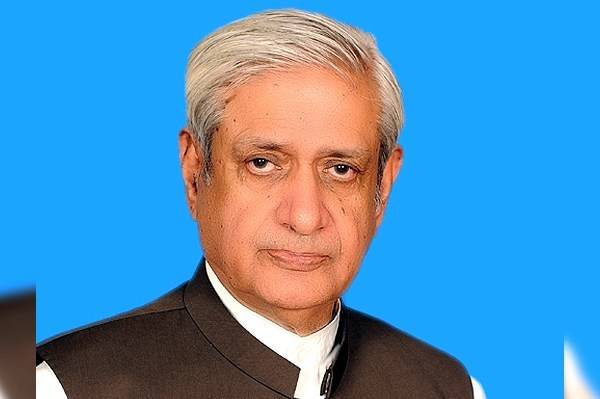The government on Thursday fixed the target for wheat production for Rabi 2020-21 at 26.78 million tons by cultivating the crop over 9.16 million hectares across the country.
The target was set in a meeting of Federal Committee on Agriculture (FCA) held here with Minister for National Food Security and Research Syed Fakhar Imam in the chair.
The meeting was informed that for the upcoming Rabi season, Indus River System Authority (IRSA) Advisory Committee has anticipated shortfall of 10 percent. During the Rabi season provinces are allocated 33.09 million acre feed (MAF) of water and prevailing weather conditions are supportive and shortage is manageable.
Metrological Department informed that overall 41 percent above normal rainfall reported across the country in July to September, 2020, however, Sindh province received 100 percent above the normal rains, whereas, Balochistan 74 percent Punjab 16 percent, KPK 8 percent, Gilgit Baltistan received 36 percent above normal rains whereas Azad Jammu and Kashmir received 14 percent below normal.
The meeting was further informed that sufficient amount of soil moisture was available for sowing of Rabi crops.
Whether outlook for the period of October to December, 2020 suggest that amount of rainfall will be below normal in agricultural plains of all the provinces.
The meeting was informed that during financial year 2019-20, the agri-lending banks and institutions disbursed Rs 1,215 billion which was 90 percent of the actual target of Rs1,350 billion and 3.5 percent higher than the disbursement of Rs 1,174 billion made during FY 2018-19.
Further, during the first quarter (July to September, 2020-2021) 50 agri-lending institutes including commercial, specialized Micro Finance, Islamic Banks and other Micro Finance Institutes have disbursed Rs 254 billion.
The meeting was also informed that during upcoming Rabi 2020-21 (November – December, 2020) supply of urea and DAP expected to remain stable.
While reviewing the progress of Kharif crops, the meeting was informed that the output of all major Kharif Crops including sugarcane, rice, oil seeds and pulses witnessed significant growth.
The meeting was informed that area under sugarcane cultivation in Punjab increased by 20.68 pc as compared to last year, Sindh by 0.96 pc, Balochistan 3.37 pc, where as area under sugarcane in Khyber Pakhtunkhwa decreased by 0.8 pc.
As compared to the previous year, sugarcane production in Punjab grew by 21.18 pc, in Sindh, it increased by 0.53 pc, KPK increased 0.14 pc and sugarcane production in Balochistan increased by 9.54 pc.
In addition, the area under rice cultivation in Punjab enhanced by 20.30 pc as compared to the previous year, in KPK increased by 0.25 pc and the area under rice in Balochistan increased by 1.77 pc, where as it was decreased in Sindh.
Meanwhile, rice production in Punjab witnessed 20.27 pc growth during the season, where as in Sindh it was decreased by 3.24 pc.
The rice production in KPK increased by 0.77% and rice production in Balochistan increased by 2 pc respectively.
The meeting was apprised that area under moong pulse cultivation grew by 22.54 pc as compared to previous year, where as peanut production in the country increased by 57.13 pc.
Speaking on the occasion, Fakhr Imam said that the Prime Minister, Imran Khan was giving special priority to agriculture, adding that acquisition of modern technology, supply of better seeds, balanced use of fertilizers could help achieve higher yields.
“Our livestock sector is better, he said adding that production was better in paddy and sugarcane.”
While cotton production was declining due to pink ball warm and white fly due to deficiencies in seed sector, he said adding that Punjab Seed Corporation was contributing only 3 to 5% of required seeds.
The minister further said that minimum support price of wheat would be decided in next week and fertilizer would be provided to farmers on subsidized.
Imam stressed the need for taking needful steps for increasing wheat production to tackle with the growing requirements of the commodity as well as to exports.
Secretary Ministry of National Food Security and Research, Omar Hamid Khan said that the purpose of the meeting was to formulate a strategy for the production target of all crops.
‘We will bring the Prime Minister’s agricultural vision into practice,’ he said, adding that the responsibility of food security during this crisis lied with the federation and the provinces.






